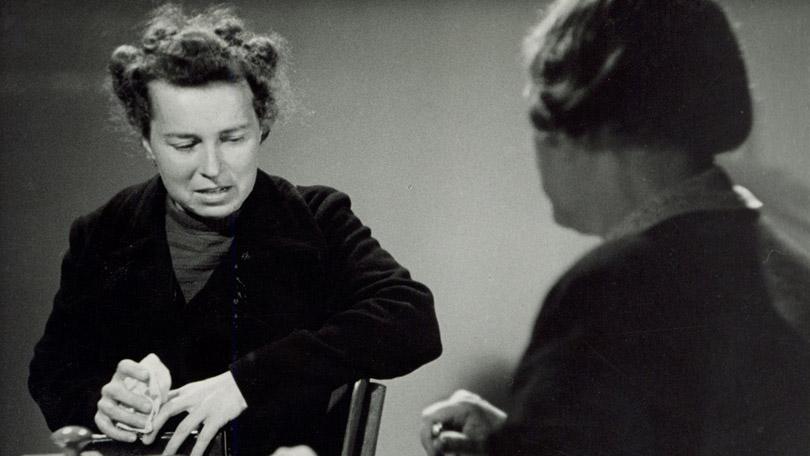In 1940, Ebbe Neergaard published En Filminstruktørs Arbejde ("A Film Director’s Work"), the first ever Dreyer biography. At a reception for the book, Dreyer was first introduced to Mogens Skot-Hansen. The next day Dreyer called him up, suggesting that they co-write a feature film adapting the play Anne Pedersdotter. Skot-Hansen, who had been involved in screenwriting before, was honoured and accepted the offer. They co-wrote the screenplay and Skot-Hansen tried to sell the Anne Pedersdotter project to Nordisk Film. He recalls the pitch as follows:
"Nordisk executive Brøndum was very commercial and thought like a calculator. I made a deal with him: Dreyer would do a short film for Nordisk – and afterwards Nordisk would finance his feature film. That short film was Good Mothers."
He made Nordisk Film promise to produce the film if Dreyer proved that he could stick to a budget.
"I spoke with Dreyer on Friday and he immediately contacted a lady at Mødrehjælpen [Mothers Aid, ed.]. On Monday already he provided all kinds of information on the subject and had written a script, utterly perfect."
Good Mothers was shot in the summer of 1942 at Nordisk Film with a cast of non-actors, many of them affiliated with Mødrehjælpen. Kristian, a small boy who is brought along to Mødrehjælpen by Erna (Hjørdis Jacobsen), is played by the son of Vera Skalts who headed the organisation for many years.
The dramatised parts suffer severely from bad acting, but otherwise the film is neatly put together, although that does not mean that it looks anything like a Dreyer film. It is dated in many ways. Apart from the film’s moral and legal datedness, its language is gratingly old-fashioned. Erna teaches a "simple children’s song" at a parenting class that goes:
Poor little Negro boy
He is black from head to toe
So he must always go
Poor little Negro boy.
Dreyer finished Good Mothers on time and on budget, so that was not why Nordisk Film got cold feet and reneged on producing Anne Pedersdotter. Dreyer, however, did get the studio’s permission to try and "place himself and Anne Pedersdotter with Palladium." Skot-Hansen showed Palladium the financial statements for Good Mothers, persuading chief executive Tage Nielsen to produce the film that would become Day of Wrath.
